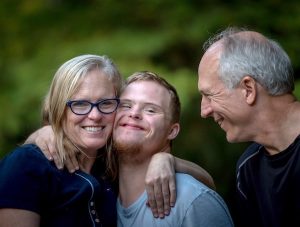
Test case challenges the misuse of handcuffs against detained asylum seekers
 We launched a major test case challenging the inhumane and unjustified use of handcuffs to restrain men and women attending offsite medical appointments.
We launched a major test case challenging the inhumane and unjustified use of handcuffs to restrain men and women attending offsite medical appointments.
PIAC’s client, ‘Yasir’, has spent seven years in detention. With a history of severe torture and childhood abuse, handcuffing is so retraumatising for him that it poses a major barrier to obtaining essential and timely health care, yet the Department has refused to follow medical advice and cease using handcuffs.
Yasir’s case is not isolated. In recent years there has been increasing concern about excessive use of force against asylum seekers in Australian facilities. Both the Australian Human Rights Commission and the Commonwealth Ombudsman have recommended urgent reforms.
Through test cases such as Yasir’s and our ongoing policy advocacy, PIAC is working to change the system.
This case is supported by Grata Fund and Woodsford Litigation Funding. Mary and John Walker proudly support Yasir and the work of PIAC on his behalf.
Image credit: Flickr/ HoustonwiPhotos
Raising the age of criminal responsibility: a positive future for our children
 Children as young as 10 years old are being imprisoned in every State and Territory in Australia, despite decades of medical, social and legal research highlighting the harm this causes. Aboriginal and Torres Strait Islander children are disproportionately impacted, accounting for 70 per cent of children aged 10 to 13 in detention.
Children as young as 10 years old are being imprisoned in every State and Territory in Australia, despite decades of medical, social and legal research highlighting the harm this causes. Aboriginal and Torres Strait Islander children are disproportionately impacted, accounting for 70 per cent of children aged 10 to 13 in detention.
We are working with partners including the Aboriginal Legal Service NSW/ACT, Just Reinvest, Amnesty and the Royal Australasian College of Physicians as part of the NSW campaign to raise the age of criminal responsibility from 10 to 14.
In the past year, we have met with the NSW Attorney General, hosted a well-attended public Zoom forum and spoken out in the media, appearing on Triple J Hack, ABC 702 Breakfast, Radio National’s Late Night Live and ABC TV’s The Drum.
In August 2020 the ACT become the first jurisdiction to commit to raising the age of criminal responsibility. We continue our work coordinating efforts in NSW to achieve change on this crucial issue.
Image credit: Flickr/ JobsForFelons
Building a fairer NDIS: transparency and accountability
 Together with disability advocates, and reflecting the strong concerns of people with disability, we have urged the Government to re-think their deeply flawed overhaul of the National Disability Insurance Scheme.
Together with disability advocates, and reflecting the strong concerns of people with disability, we have urged the Government to re-think their deeply flawed overhaul of the National Disability Insurance Scheme.
The changes would unfairly limit access to the scheme for people with a range of serious disabilities, make the assessment process even less transparent, and undermine the ‘choice and control’ the scheme was designed to provide.
We are particularly concerned with the proposal for decisions about whether a person can access the NDIS and how much funding they receive to be based on a mandatory independent assessment, undertaken by a health practitioner who is not known to the person being assessed. This independent assessment would not be able to be reviewed or appealed.
The Government’s announcement in April that it would pause their planned changes was a welcome development.
Our policy and legal expertise has also allowed us to play an important role in the media and through parliamentary inquiries to highlight other systemic issues including a lack of transparency and accountability in decision-making by the National Disability Insurance Agency. We continue to call on the Government to properly consult with the community so that improvements to the NDIS are co-designed with people with disability.
Image credit: Unsplash/ Nathan Anderson
Mental Health and Insurance
 Our work tackling discrimination by insurance companies against people with mental health conditions has helped over 70 people challenge unfair decisions by insurers, including decisions to deny claims or refuse insurance.
Our work tackling discrimination by insurance companies against people with mental health conditions has helped over 70 people challenge unfair decisions by insurers, including decisions to deny claims or refuse insurance.
In 2018-19 we were able to have this issue examined by the Banking & Financial Services Royal Commission, which led to prosecution by the Australian Securities and Investments Commission of insurer TAL for its mistreatment of a PIAC client.
TAL initially paid the woman’s claim relating to cancer, but then cancelled her policy after obtaining her medical records and finding that she had visited a psychologist. TAL argued that this constituted evidence of an undisclosed mental illness, even though the woman’s psychologist confirmed that she had not received any diagnosis.
In March this year, the Federal Court handed down its judgment, finding TAL had breached its duty to act in utmost good faith. The case highlights the poor handling of mental health issues by insurers and the need for greater accountability.
Especially at a time when people should be encouraged to be proactive in managing their mental health, it is critical that the conduct of insurers does not discourage people from getting the help they need.
Image credit: Pexels/ Andrea Piacquardio
Social justice pathways for Aboriginal law graduates
 In partnership with The Shopfront Youth Legal Centre and with the generous support of the Matana Foundation for Young People, we have launched a new Aboriginal Social Justice Graduate Program.
In partnership with The Shopfront Youth Legal Centre and with the generous support of the Matana Foundation for Young People, we have launched a new Aboriginal Social Justice Graduate Program.
The Graduate Program will help kick-start the career of an Aboriginal or Torres Strait Islander solicitor with a commitment to social justice, providing a combination of practical experience, mentoring and professional support across the legal practices of PIAC and The Shopfront.
We look forward to welcoming our first Graduate in June 2021.
Image credit: Keith Saunders